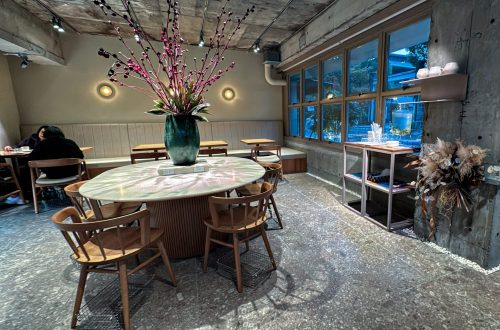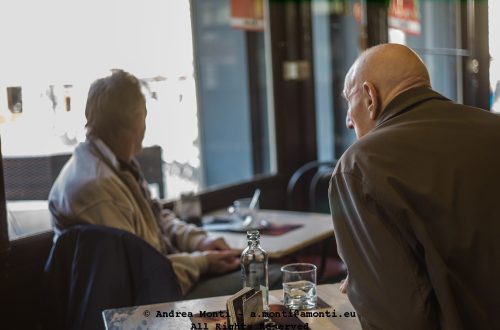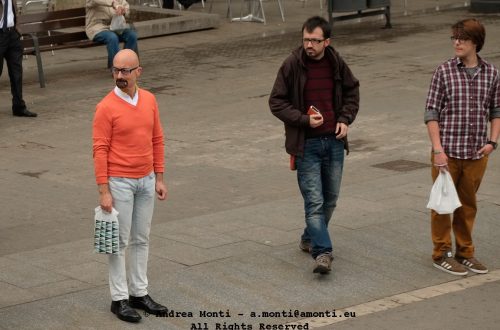
5 frames with the (much awaited) Ferrania P33, a Nikon F3 and a Nikkor 50 F2
I managed to grab a few rolls of the very first batch of Ferrania’s brand new P33 film, so I wasted no time in putting it to work with a Nikon F3 and the glorious Nikkor 50 f2. I won’t go into the technical details of this film, firstly because I can’t claim to be an authority on the subject, and secondly because Ferrania’s website has plenty of information. There is only one thing to know: the canister is not DX-coded, so shooting is only possible in full manual mode. This may change in the future, but for now this is the state of the art. Finally, a transparency note: I bought the P33 by myself, I was not asked to write this post, and I am not affiliated with Ferrania, although some of my pictures have appeared on its website.
The P33 is presented as a double ISO P30. In fact, it is a 160 ISO, whereas the P30 is 80. Having shot with both films, I can say that to my eye there is no visible difference in grain, and pretty much all the characteristics of the P30 have been retained.
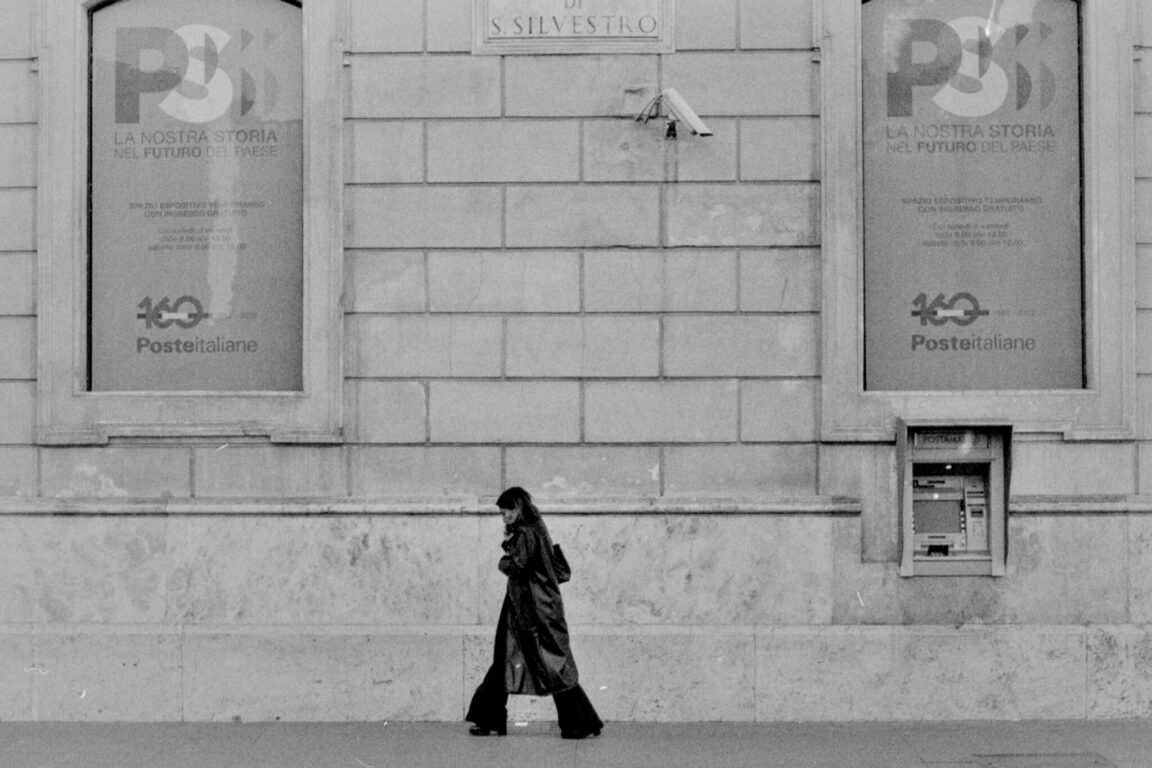
In tight spaces, a Fifty is not always the most effective lens to use. Perhaps a step back would have given a better frame for the horse’s head.
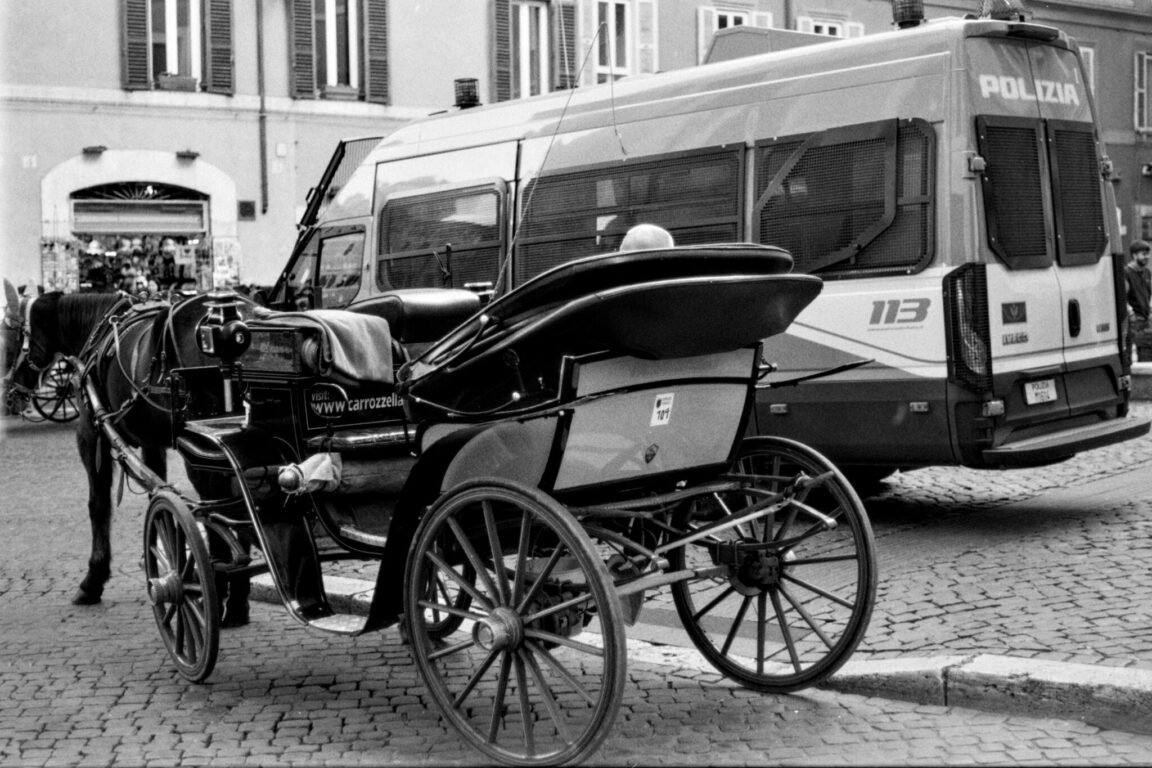
Again, perhaps a 35mm would have been a better choice, allowing the cap of the man in the background to be fully captured. It is a minor flaw, but one that I find disturbing. However, beggars can’t be choosers.
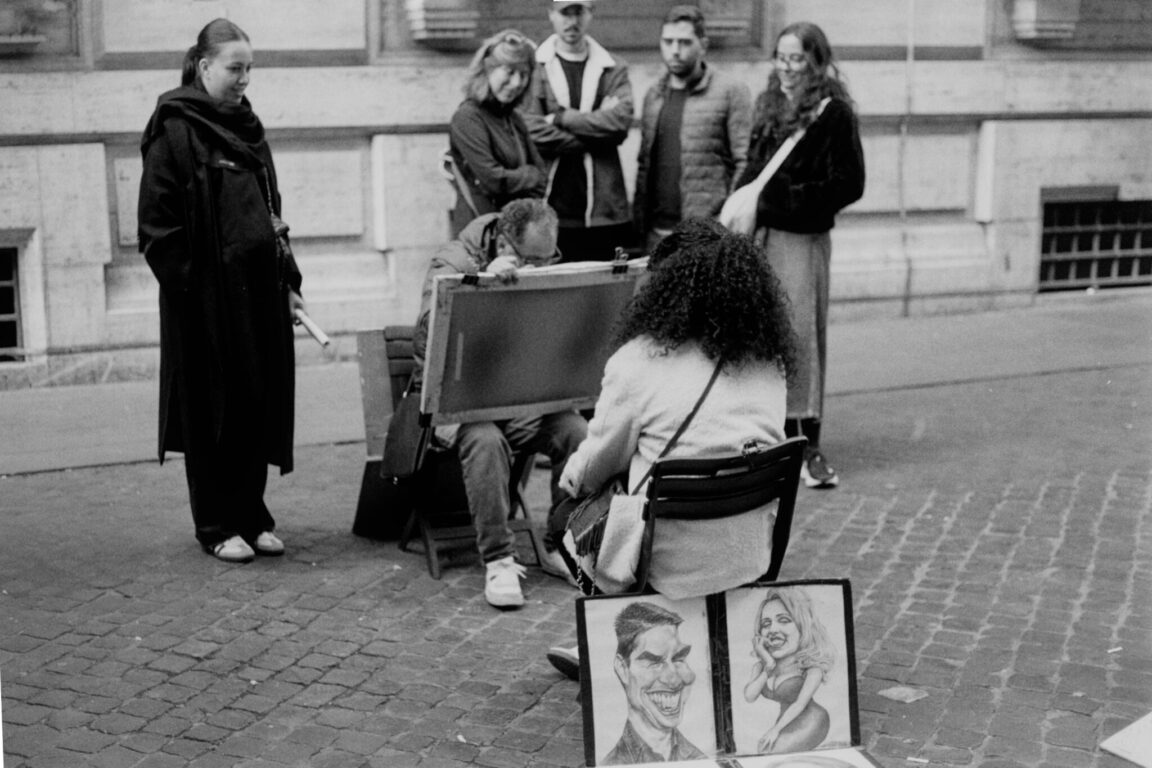
As for the camera and lens, I have no complaints. The F3 is still a beautiful and reliable camera, and the Nikkor 50 f2 gives pleasant results even at full aperture.
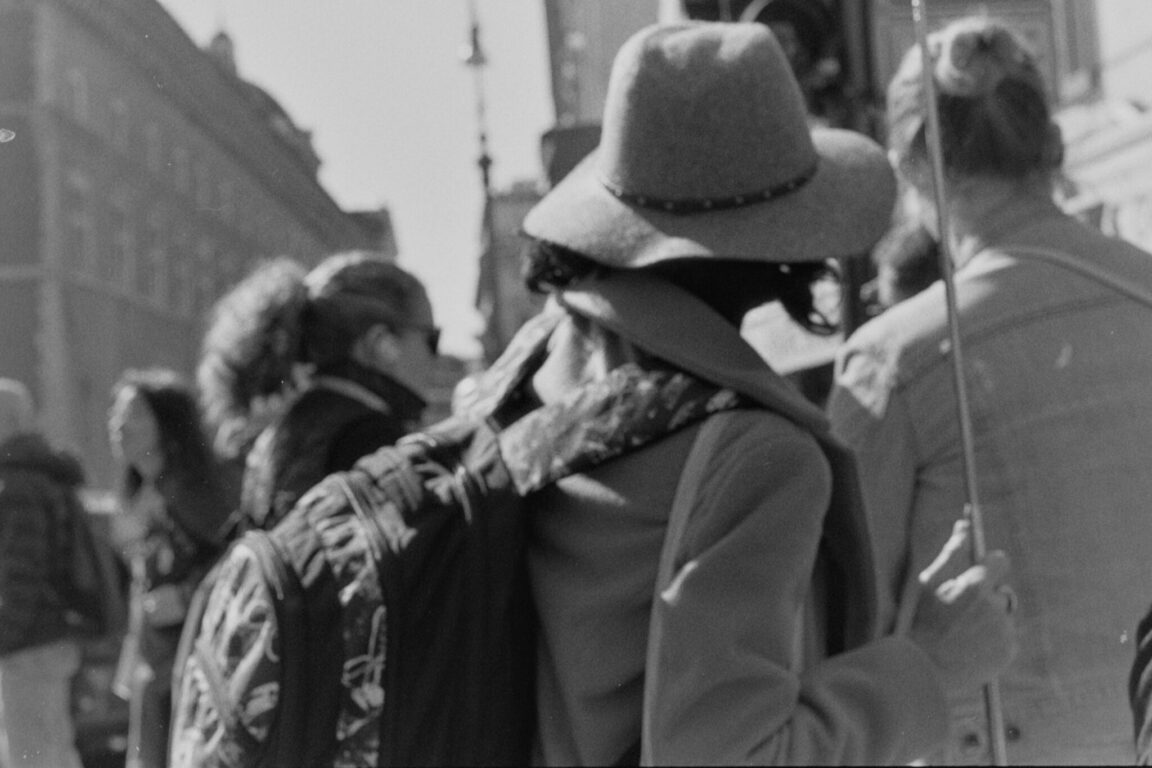
It was just a coincidence, but when I saw the symbol of the man on the traffic light, I made an immediate connection with the two mannequins and felt compelled to take the shot.
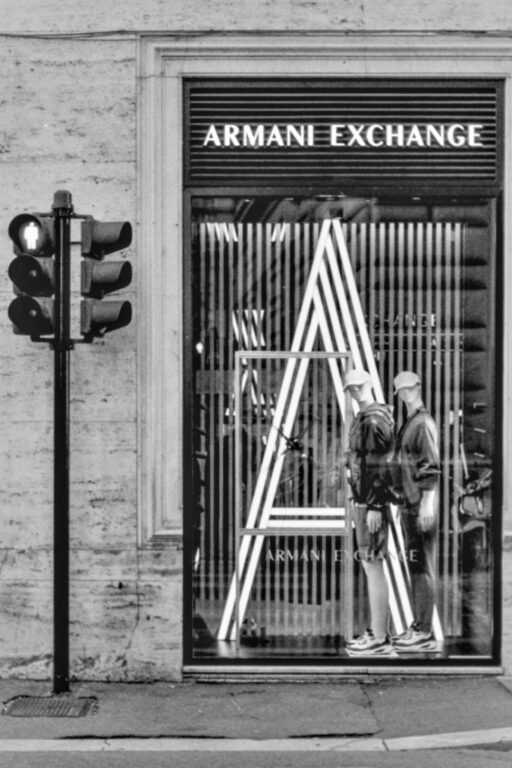
A note on post-processing: I still scan the negatives with a Pentax K1 and a Pentax FA100 2.8 Macro at F8, convert them to positives with Darktable’s Negadoctor module and refine the image with Pixelmator Pro. The results are improving, but I think there is still room for much better tones. Perhaps I should give the Nikon LS4000 another go.


